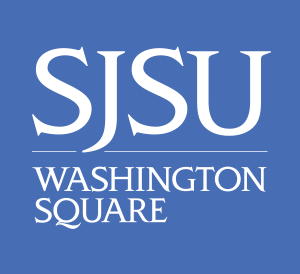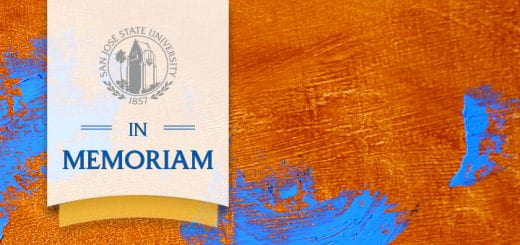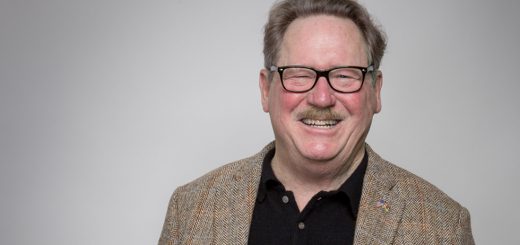Alumni Healthcare Leaders: Jarie Bolander

“We need to make sure that the next generation of graduates, entrepreneurs, engineers, biologists and doctors understands that they have an opportunity to impact the world. Use your talent to improve the world.”
The nation’s complex and hotly debated healthcare system affects us all. Washington Square wanted to hear from alumni insiders who are shaping the industry—from hospitals and biotech companies to medical devices and research and development.
Here is our full conversation with Jarie Bolander, ’95 Electrical Engineering, COO of Lab Sensor Solutions. Read Q&As with all 10 alumni healthcare leaders.
Why did you choose your major?
The short answer is my dad has an electrical engineering degree from San Jose State. He graduated in 1970. When we were kids, we used to build electronics. When I was trying to figure out what I wanted to do with my life, there were two major things. The first was I wanted to be a pilot— a Top Gun kind of guy. Or I was going to be an engineer.
My dad influenced my decision to not only go into electrical engineering, but go to San Jose State. San Jose State was known to put out a lot of engineers, and it was more of a practical school. Since we were in Silicon Valley, which had a lot of semiconductor businesses, I decided I would study electrical engineering and then specialize in semiconductors. And I thought at the time, the mid-90s—with Silicon Valley building out all the infrastructure for the Internet—that this was a good choice.
Who was your favorite professor?
Professor Michael O’Flynn and Professor Jack Kurzweil. My dad also had them both. Professor O’Flynn taught this class called Probability Theory, which was really dense on math. My head wanted to explode. O’Flynn had a thick Irish accent and liked to gamble. And probability theory, if you’re a gambler, is the thing that you need to learn, because it basically tells you the odds of everything—blackjack, poker, horse racing, dice. He loved horse races, so half of our problems would involve horse racing. And it was just great.
Did you work or participate in campus activities while at SJSU?
I had a part-time job to pay for school. I was an electronics technician, which was pretty much the practical side of what I was studying. I’d be in a lab and we’d design a circuit, build it and test it, and then I would go to my job and then it would be the same thing. San Jose State is a very good school for learning practical knowledge with theory.
What would want people to know about San Jose State?
For engineering, it’s a really solid school that’s very well accepted in the valley. You know, Google and Facebook hire more San Jose State engineers than they do Stanford and Cal.
What inspired you to work in healthcare?
My first foray was trying to figure out how to make clinical laboratories more efficient by tracking blood samples. Basically, making sure that samples don’t get lost, which is actually a really big problem in healthcare. When I looked at that, I decided that I wanted to help people, and that was only reinforced by my late wife, who had leukemia. I feel it’s one of my duties to fix this and to ensure that we are doing everything we can using the technologies available.
What is the biggest challenge in U.S. healthcare today?
The healthcare industry is probably a couple of decades behind other industries in its use of technology. People can have a big impact by making it easier for doctors and nurses and technicians to do their jobs, and reducing the human error. I’ll give you an example. You’ve heard of Watson? IBM had it digest every single oncology paper in existence. Basically, they taught Watson how to diagnose cancer.
How does Lab Sensor Solutions address a major patient need?
Lab Sensor Solutions is a sensor-as-a-service platform that allows healthcare providers or people in the healthcare business to monitor parameters that are important to them. The most important parameters that we first started off with were temperature and location. And that is predominantly due to the perishable nature of healthcare materials, not only drugs, but blood, tissue, urine—anything that can spoil. We continue to choose to figure out how to help healthcare. It’s really important to us, and it’s really important to me. It’s one of the passions that is only reinforced because of my late wife’s illness.
What is your one message for your fellow alumni?
I’m an entrepreneur. San Jose State gave me a very solid foundation in being entrepreneurial, because we are in Silicon Valley. Practically every one of my classmates has gone to a startup.
I have published a book called The Entrepreneur Ethos: How to Build a More Ethical, Inclusive and Resilient Entrepreneur Community. It’s basically how to build a more resilient, inclusive and ethical entrepreneur community. What I’ve learned—and what I’d love to communicate to anyone who’s an entrepreneur—is that we need to hold ourselves to a higher standard. We need to ensure a standard of excellence, of being ethical and looking out for society and doing impactful work benefits everyone. We need to make sure that the next generation of graduates, entrepreneurs, engineers, biologists and doctors understands that they have an opportunity to impact the world. Use your talent to improve the world.



